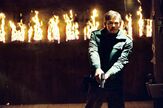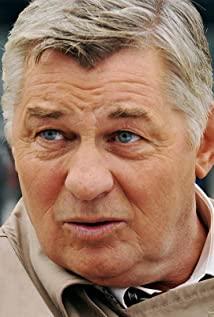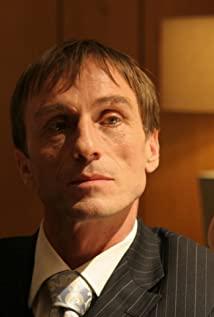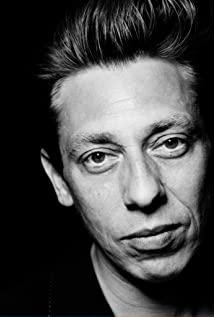The most frightening serial killers in film history are usually intelligent, such as the Cannibal Professor in [The Silent Lamb], and Engel in the German movie [Antibody]. What these murderers have in common is their own strange and unique spiritual beliefs, which are beyond ordinary religious beliefs, laws, ethics, and even the flesh.
They are fearless, and the fear of others will bring them pleasure. The rich knowledge and the ability to perceive human nature make them even play with the police officers who are trying their own cases. To defeat this kind of people, courage is not enough, everyone will feel fear in front of them. Overcoming them depends on anger, a sense of responsibility, or a stronger faith. [Antibody] There is a thrilling beginning. In a dilapidated apartment in Berlin, the police captured a serial murderer who was performing a strange blood sacrifice ceremony: drawing the blood of a living teenager into a bucket Inside, and then paint with blood as a dye. The news of the capture of Engel alarmed Michael, the sheriff in a small village near Berlin. The residents of this small village believe in God, but a series of murders in this small village in recent years have made the villagers panic, and the residents are also full of hostility towards Sheriff Michael. Michael came to Berlin, visited an old friend, Seiler, the sheriff who captured Engel, and asked if Engel was also the murderer in a series of murders in his village. Engel is also full of interest in Michael, who is on the verge of trust and life collapse, and constantly affects Michael's mind with sharp questions. With the development of the plot, the truth seems to gradually emerge. Engel confessed to most of the cases that occurred in the small village, but denied that the death of a young girl named Rahia was related to him. The scary thing is that, according to the clues provided by Engel, all the fingers are directed at Michael's 13-year-old son, a boy with weird behavior. What is the truth? This unusual criminal thriller is both connotative and entertaining. Excellent works that reach a certain height. To say that it is entertaining is actually a bit belittle the film. The film itself is very serious, discussing in depth issues such as religious beliefs, human nature, and family relationships. The plot is gripping and full of suspense. Even though the film has a lot of dialogue, it does not affect the audience's emotions.
The background of the story in the film is a beautiful village surrounded by mountains and rivers, but such a small village always has a depressive atmosphere in the film. The director did not deliberately use the lens or music to set off. Pointing at the protagonist's face, that face is full of anxiety, anxiety and suspiciousness, doubting myself, doubting others, doubting God, until the truth comes to light at the last moment. The handling at the end of the film is a commendable place. After the protagonist Michael determined that his son had committed the crime, he decided to take his son's life with his own hands. If it is put in a Hollywood movie, the drama that turns things around will usually appear at this time. But in this film, the director arranged for the protagonist to be unbearable after all, instead of getting off the trigger. Although he was uncomfortable, he was closer to reality.
It cannot be denied that the film has been influenced by [Silent Lambs], but apart from the fact that criminals influence the police through dialogue, the two films seem to have no more similarities. The director Alat is very skilled, where he fanned the fire to promote the plot to the right place, and the large sections of the dialogue were also designed to be quite colorful, without appearing to be lengthy. Continuously inserted flashbacks also lead the plot to the final truth. Finally, it is reasonably merged with the main plot.
View more about Antibodies reviews











